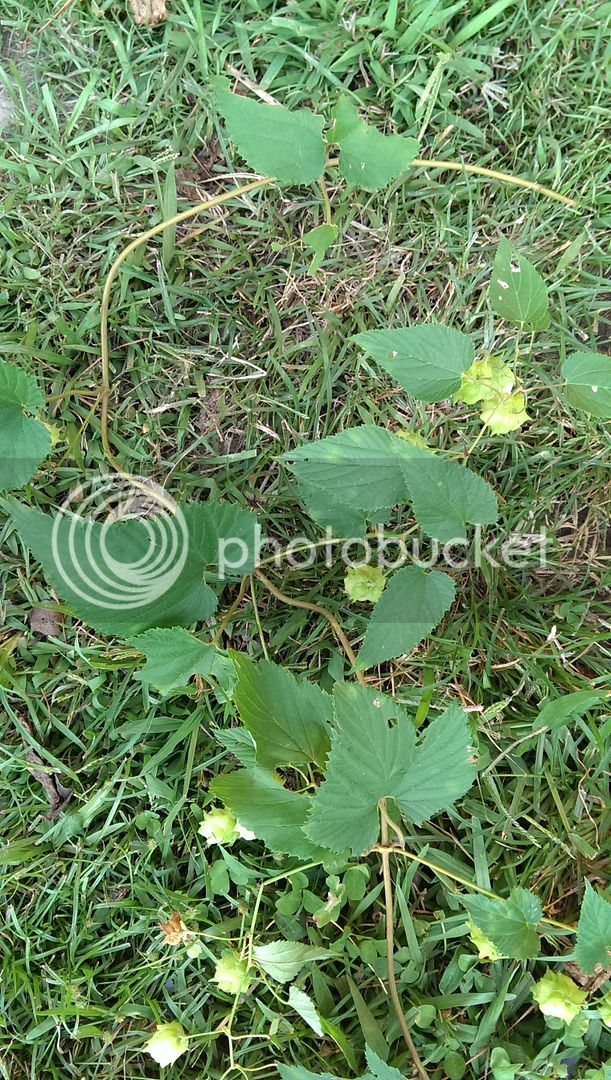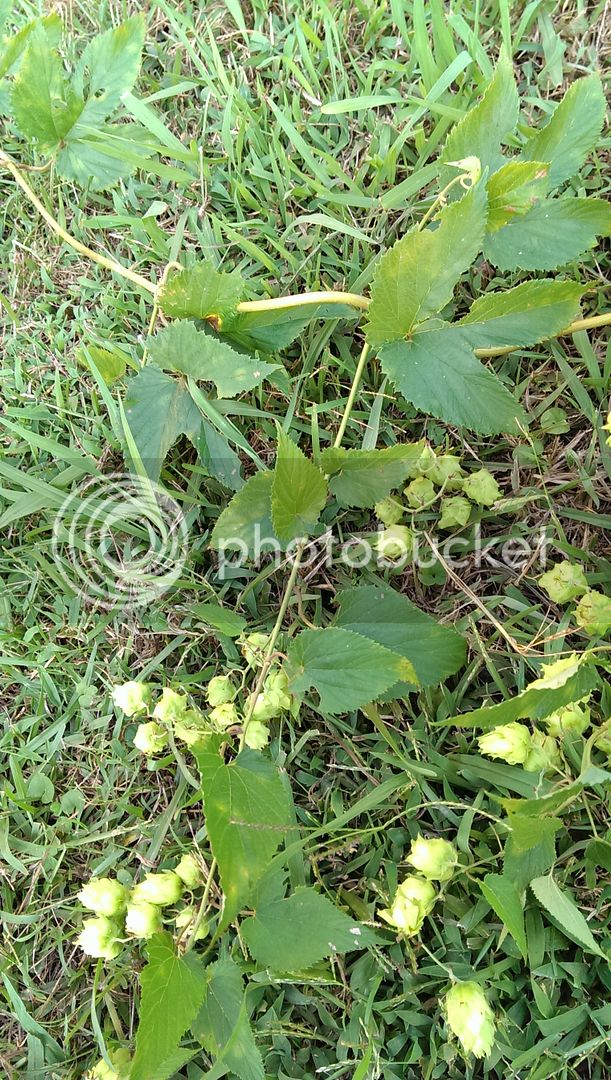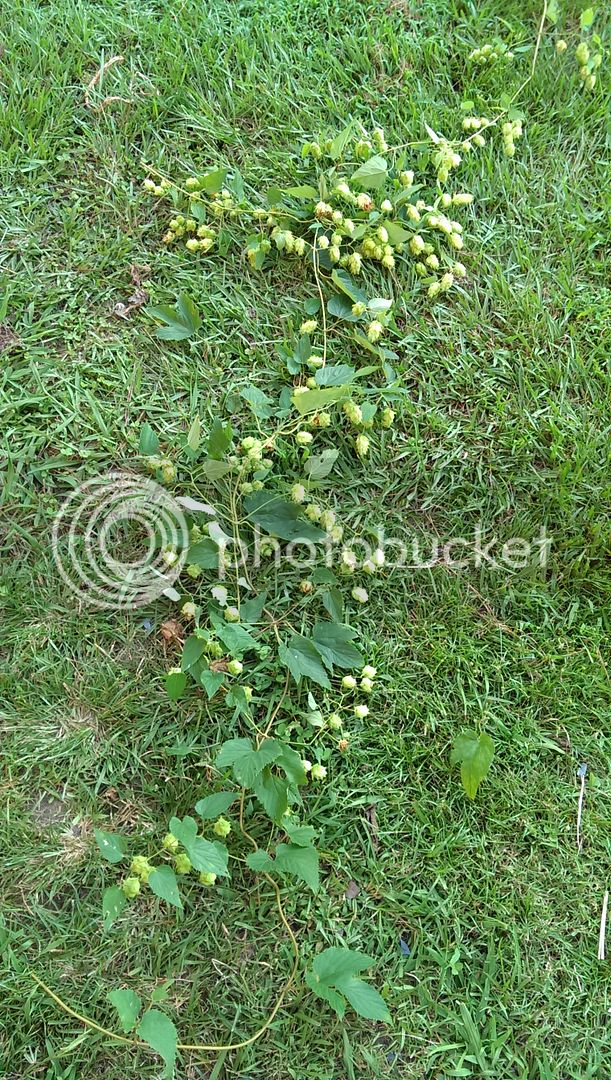


This is just one part of a bine that I broke off to bring home. I'd like to id these if possible. How do you go about making a "tea" with them. I saw some threads where people mentioned doing so, but did not provide instructions on ratio, or method.
Kind of disheartening that totally wild hops are doing so much better than my virtually non-producing cared for hops.


